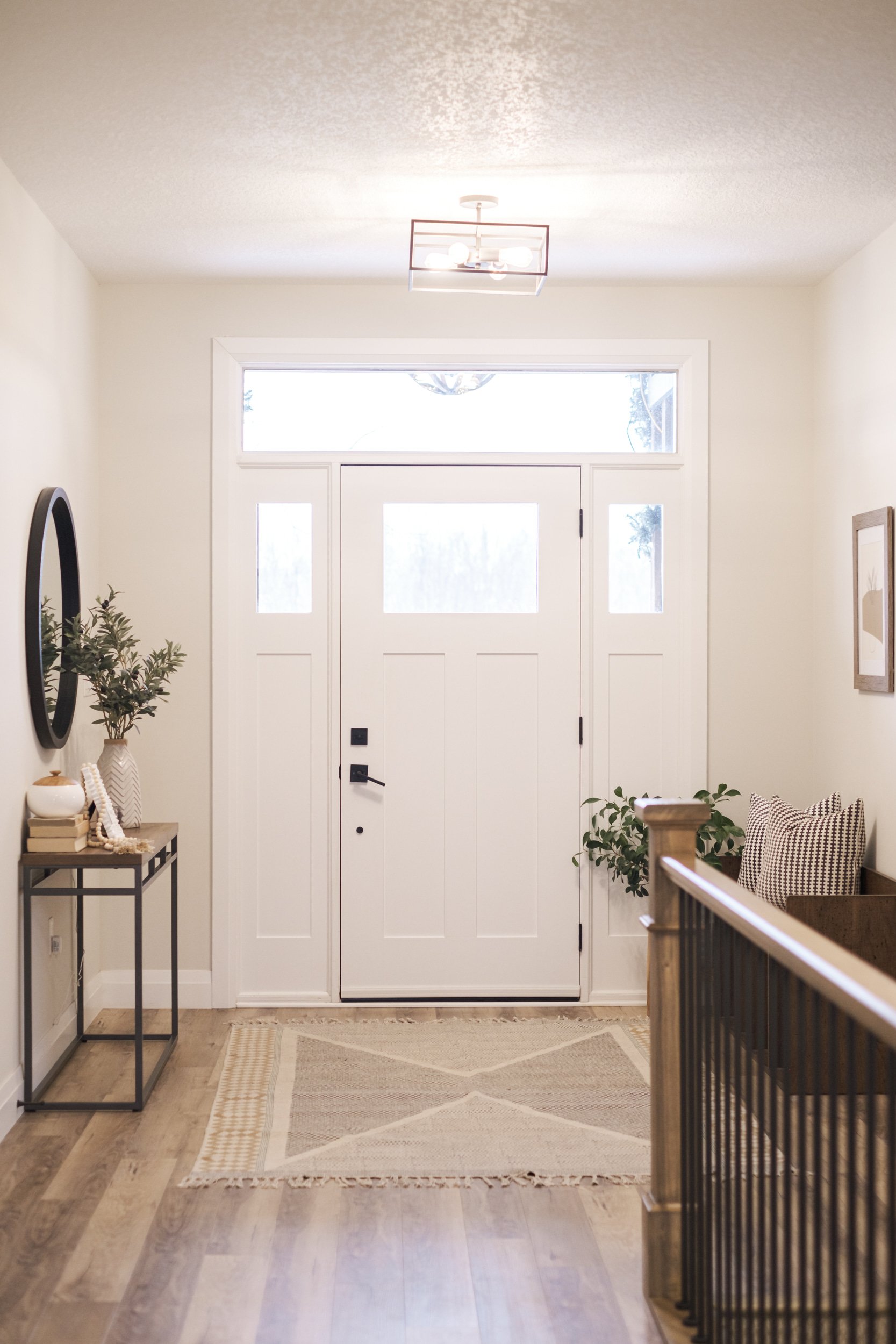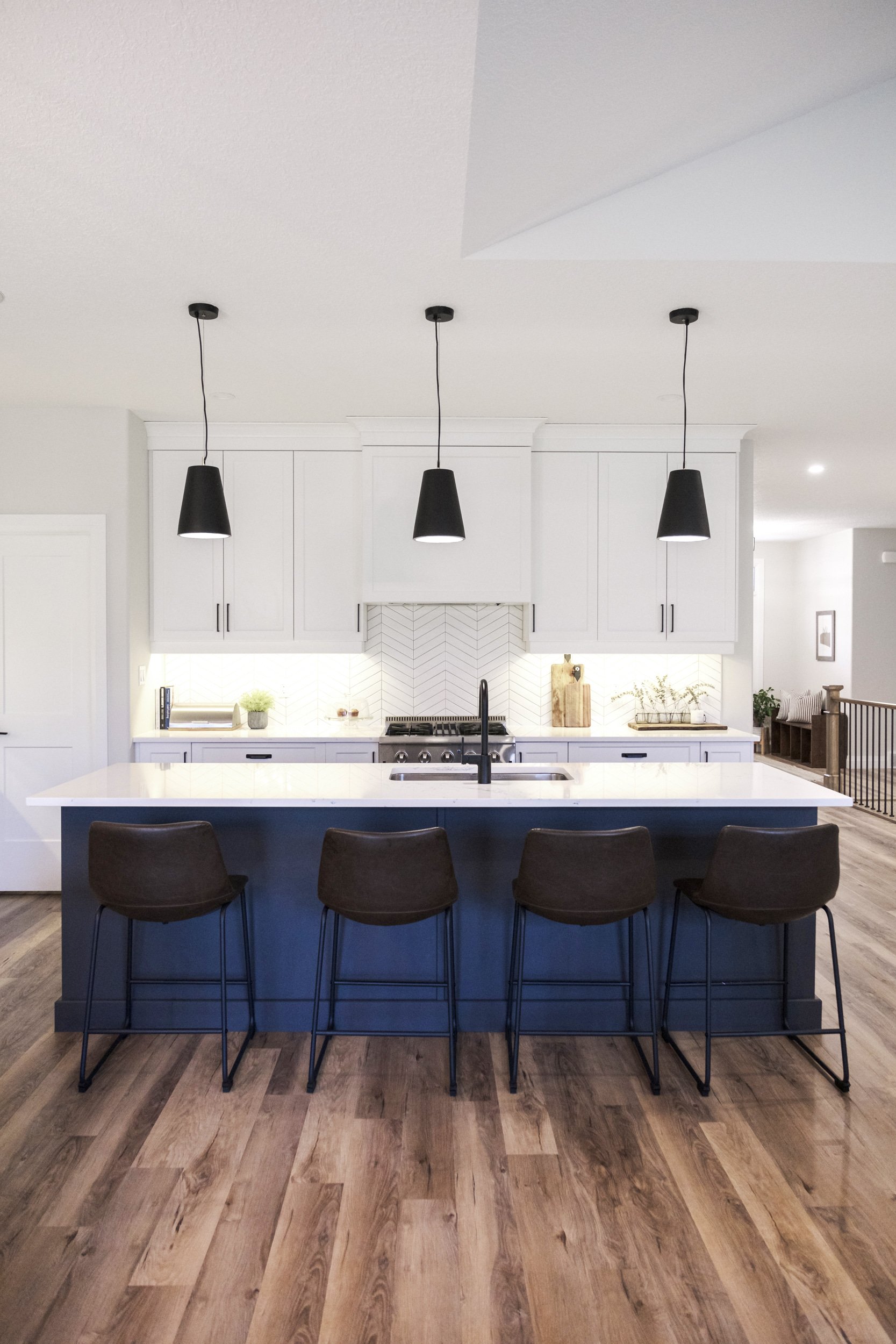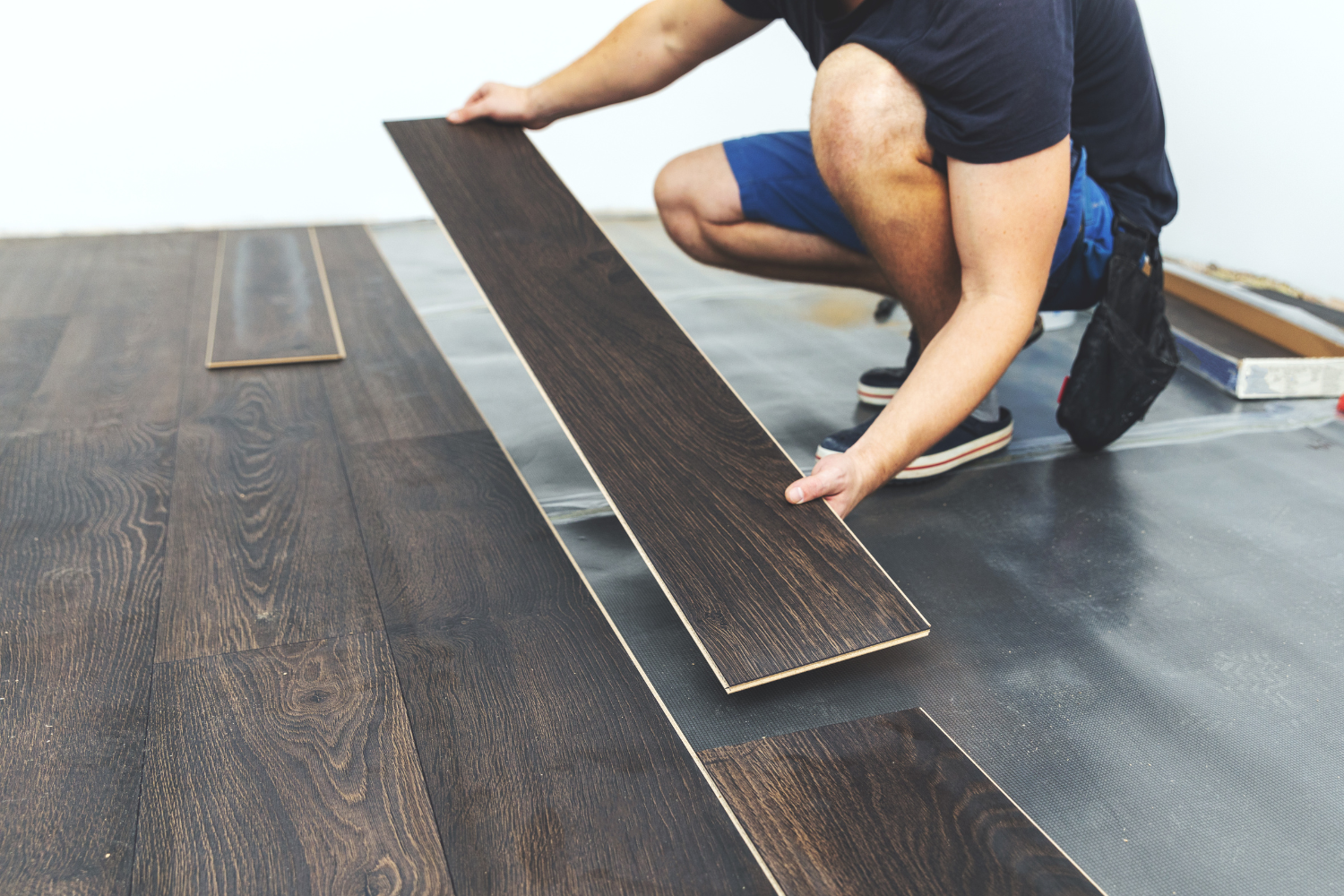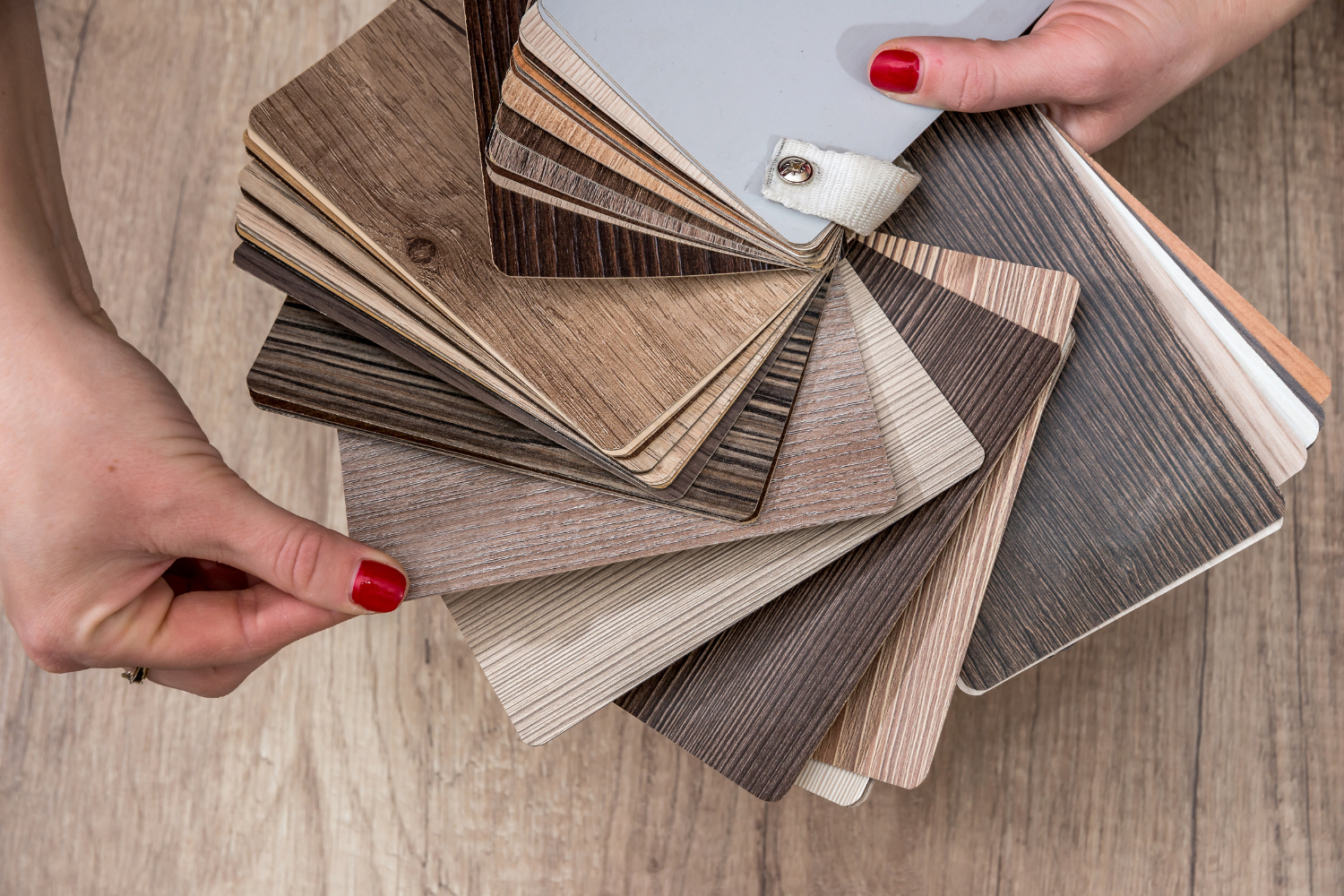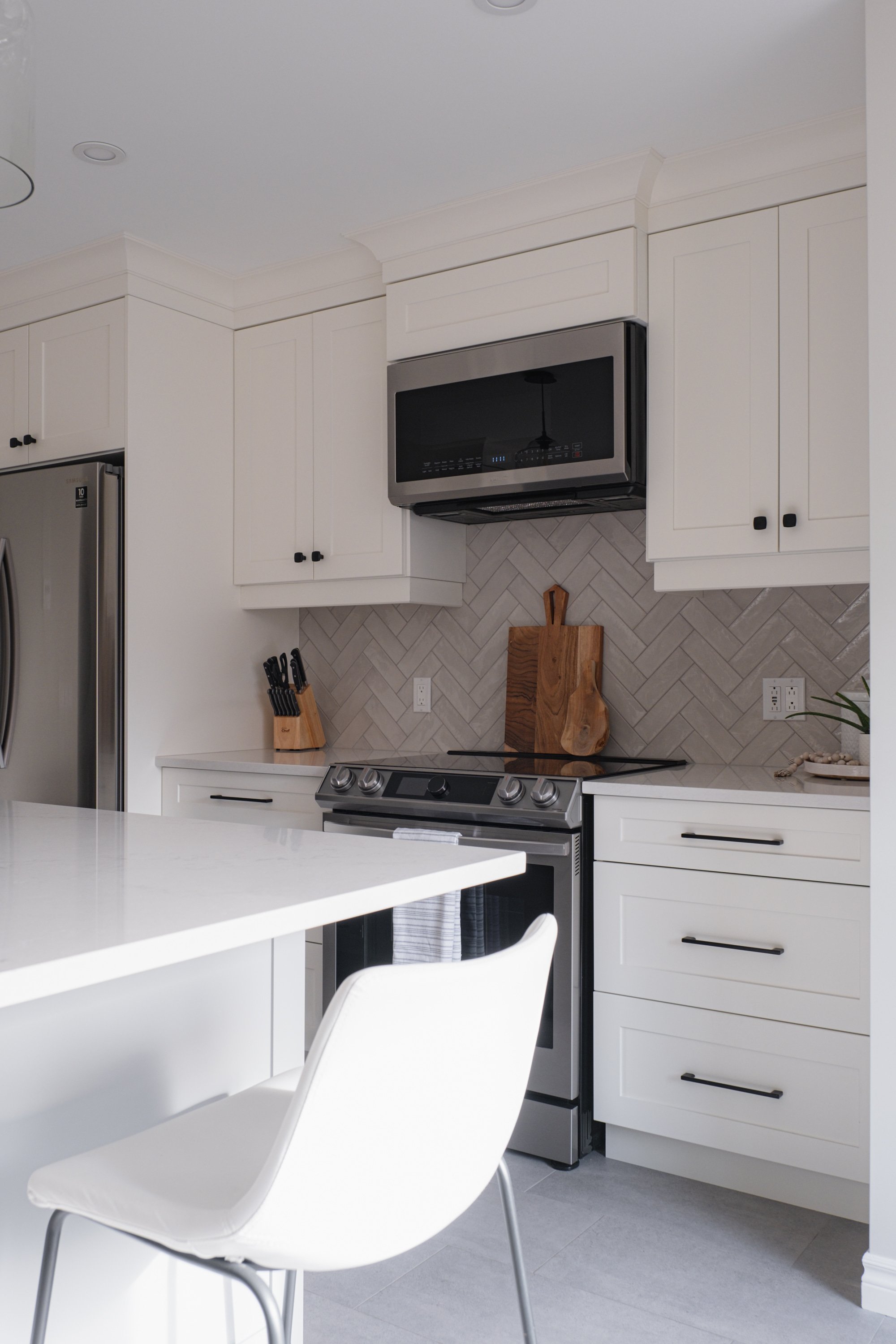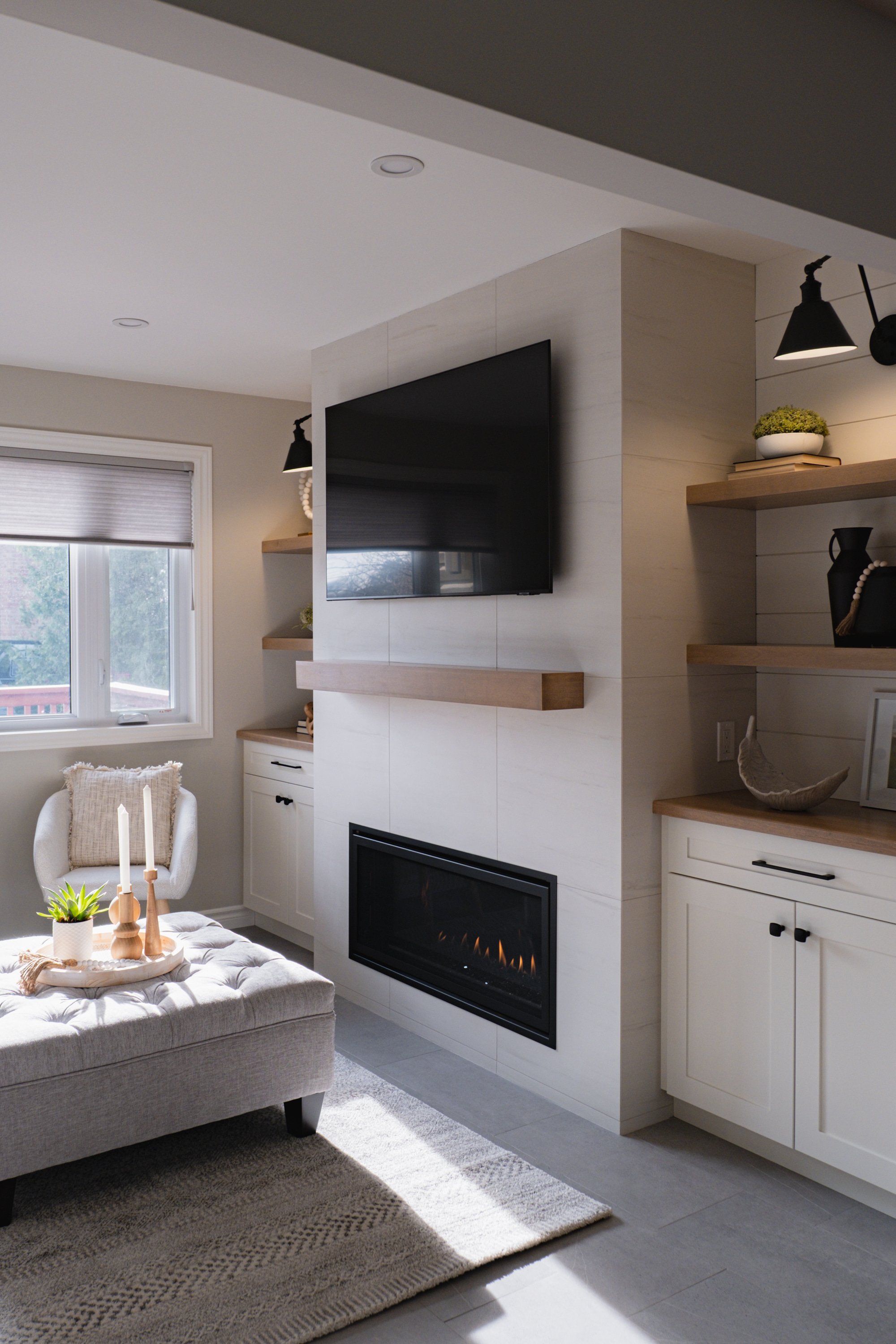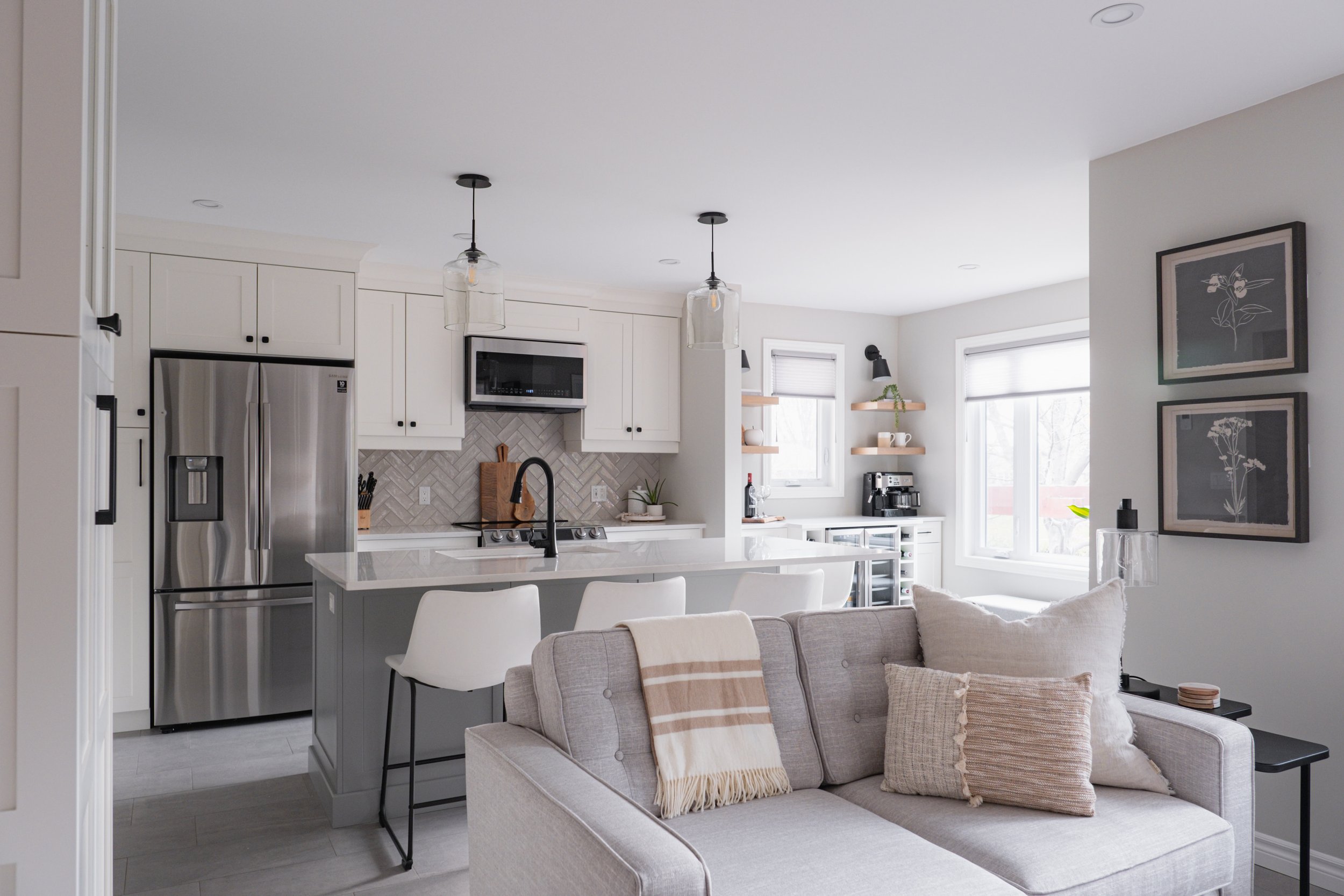Pros and Cons of the Various Luxury Flooring Options on the Market Today
Hardwood & Engineered Hardwood have dominated as the #1 choice for solid flooring options in both New Construction and renovations for the past few decades. It is beautiful, warm, timeless and gives your home a lived in patina that develops over time. However, as with any natural wood product, it can be susceptible to warping, cupping, scratching, and denting. So, what if you love the look of hardwood, but your lifestyle doesn't align with the precautions needed to take in order for it to keep looking its best? We have some alternative solutions for you that will give you the look you desire without the anxiety of "will my kid/pet/husband ruin my floor".
Pro #1: Designed to Be Damage Free
Luxury Vinyl Plank (or LVP) flooring has made some impressive strides over the past few years and is quickly becoming the top choice for clients looking for a more durable option for their flooring. It is scratch resistant, water resistant and made to last for 10-15 years or more, upstanding to pets, kids, spills, and accidents. Because it is becoming a more popular option for homeowners, there is a wide variety of colors, widths and lengths that mimic the look of hardwood.
Luxury Vinyl Tile (or LVT) is similar to LVP, but instead of mimicking hardwood, it mimics the look of tile. The pros here are very similar to LVP, plus it is a softer, warmer alternative to tile or stone flooring. It is usually available in sizes that mimic tiles, such as 12 x 24 or 24 x 24. Both LVP & LVT are great options for high moisture areas such as bathrooms, laundry rooms and basements due to the fact that they are either water resistant or waterproof, which is determined by their installation methods. They can either be a thin, flexible glue down option, which makes them 100% waterproof, or have a more rigid core and a built-in under pad with a float and click installation method. The core or under pad can absorb water in a flood, making them not 100% waterproof.
Pro #2: Inspired By an Easy Install
Both the glue down or float and click LVP/LVT options are easy to install and can be done quickly and easily by both professionals and DIY-ers. Because both the planks or tiles are manufactured with a pre-printed or stamped pattern, you will want to take some time to plan the layout of the flooring to avoid an obvious repeat.
Pro #3: Built with Your Budget in Mind
LVP or LVT can also be a budget friendly option. Although they vary in cost and quality, a typical LVP floor can cost between $5-10 per sq foot compared to $7-$20 per square foot for solid or engineered hardwood flooring. LVT can cost between $3-$10 per square foot which is similar to ceramic or porcelain tile. The installation costs however are much lower than tile as it does not require grouting. Even with some affordable option in LVP and LVT, doing your research is essential. Not all brands and styles are created equal, and investing in a higher quality Luxury Vinyl product will not only look more realistic, it will also hold up to wear and tear better.
So what are our recommendations a far as using Luxury Vinyl vs Hardwood? Personally we love the look, feel and warmth that real wood contributes to your home and will recommend this direction 90% of the time. The patina it takes on over the years lends to the personality of your space. And if it becomes too damaged or outdated, most of the time it can be refinished. However, if we feel the space better suited to LVP/LVT we will always recommend that as a second best option. We often use it in beach front cottages, basements, or for clients who have multiple pets or busy families who really don't want to worry about damaging their wood floor.
`
If you loved these luxury flooring tips & want more advice you can use to elevate your surroundings, you'll really love our newsletter! Sign up below.
Hi! I'm Sarah
By combining style + function, I can help you create a home for your family that is both lovely and livable.
